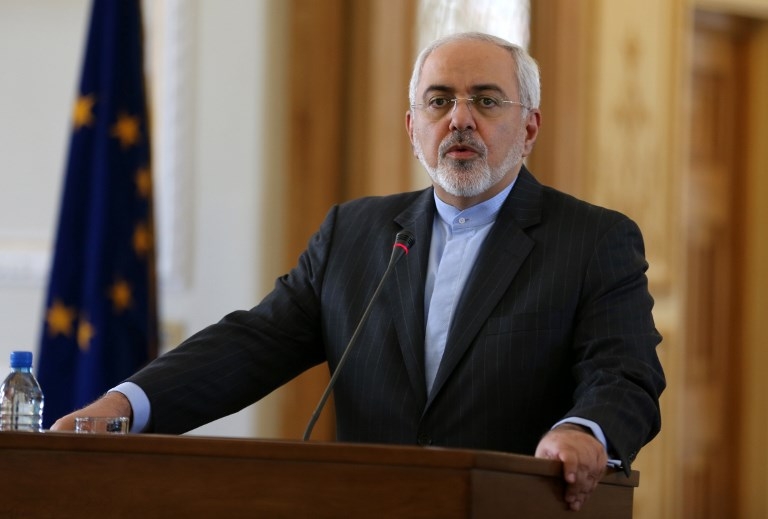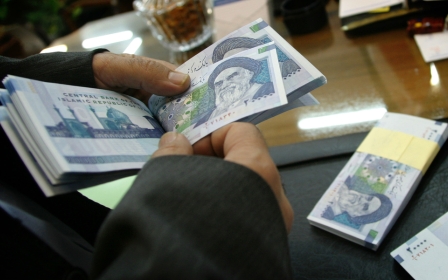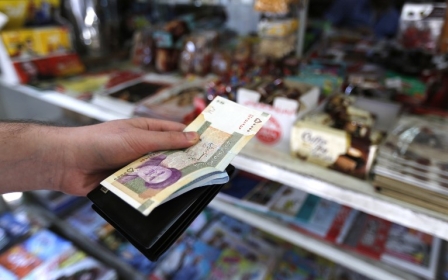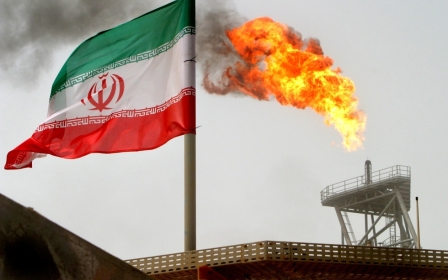US sanctions 'out of control,' Iran's foreign minister says

The United States' use of sanctions is "out of control," Iran's foreign minister said, a day after Washington announced fresh sanctions on two Iranian banks and a string of other businesses it accused of having ties to a paramilitary group.
The "US addiction to sanctions is out of control," Javad Zarif wrote on Twitter Wednesday.
A day earlier, the US Treasury announced sanctions on a network of businesses it said were tied to the Basij Resistance Force, a group that the department said works with Iran's Islamic Revolutionary Guard Corps (IRGC).
Bank Mellat, Mehr Eqtesad Bank, Mehr Eqtesad Iranian Investment, Iran Tractor Manufacturing and Esfahan's Mobarakeh Steel were among the firms subject to the sanctions.
Without identifying a specific entity, Zarif said one of the Iranian banks plays a key role in importing food and medicine into Iran. He also appeared to dispute whether the bank had any links to the Basij, which he also did not name directly.
"Iranian private bank key to food/medicine import is designated because of alleged EIGHT degrees of separation w/ another arbitrary target. In comparison, all humans on planet are connected by SIX degrees of separation. You do the math," the minister wrote.
In a second tweet, Zarif said the sanctions violate orders by the International Court of Justice. In a ruling issued earlier this month, the UN's top court directed the US to ensure that its sanctions do not impact humanitarian aid to Iran or the country's civil aviation safety.
"Utter disregard for rule of law & human rights of an entire people. US outlaw regime's hostility toward Iranians heightened by addiction to sanctions," he wrote.
A spokesperson for Iran's ministry of foreign affairs, Bahram Qassemi, also told Tehran's state media outlet on Wednesday that the sanctions were a result of US "hostility" towards Iran.
"The US government is trying to create obstacles" for Tehran as it seeks to take advantage of new "economic relations with [the] international community," Qassemi said, as reported by the Islamic Republic News Agency (IRNA).
In May, the US pulled out of the 2015 nuclear deal that Iran signed with world powers, under which it agreed to curb its nuclear programme in exchange for the lifting of international sanctions.
Since that time, the US president and key officials within his administration have repeatedly voiced their opposition to negotiating with Tehran, a position that pits Washington against several of its key European allies, which remain committed to the 2015 agreement.
The US intends to reimpose wide-reaching sanctions against Iran on 4 November, including on the country's oil sector.
New MEE newsletter: Jerusalem Dispatch
Sign up to get the latest insights and analysis on Israel-Palestine, alongside Turkey Unpacked and other MEE newsletters
Middle East Eye delivers independent and unrivalled coverage and analysis of the Middle East, North Africa and beyond. To learn more about republishing this content and the associated fees, please fill out this form. More about MEE can be found here.




